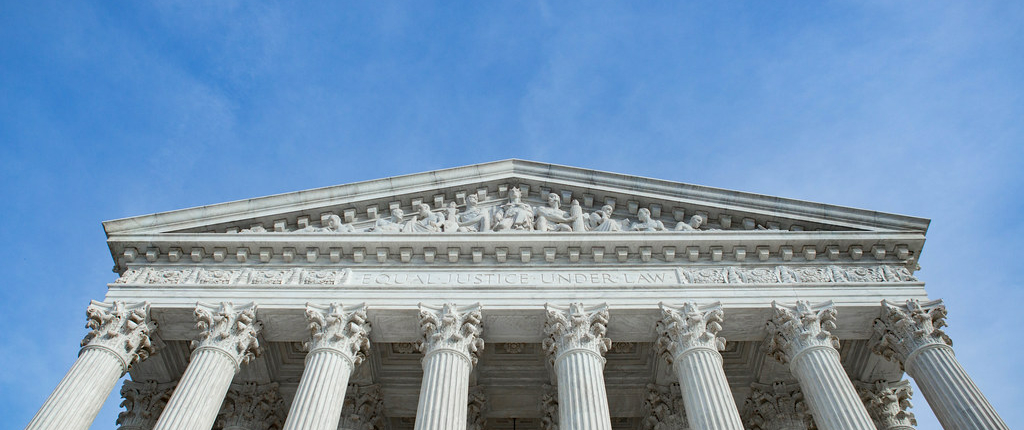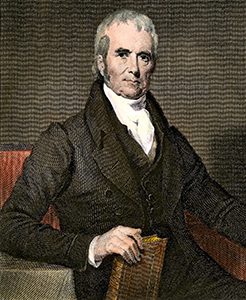

Pop Civ Breaking News: An Unprecedented Leak
PopCiv is designed as a tool for our readers as they explore topics that sit at the intersection of pop culture, constitutional history, and the workings of the Supreme Court. This week, one such issue has dominated headlines, so we turned to JMC Board Member and University of Richmond Law Professor Kevin Walsh to help us make sense of this breaking news.

Q: What leak are we talking about, and why is it getting so much attention?
A: On Monday evening, May 2, 2022, the news organization Politico published what purported to be a draft opinion for the Court overruling Roe v. Wade (1973) and Planned Parenthood v. Casey (1992). Roe and Casey are the main Supreme Court cases interpreting the Constitution as setting limits on government regulation of abortion procedures. To overrule Roe and Casey would be a major event in American law. We do not know why someone leaked the draft, but the likeliest reasons relate to an attempt to influence the decisional process of the Court in some way.
Q: Have there ever been any leaks like this one in the past?
A: There has never been a leak resulting in publication of a draft opinion for the Court before the decision has been announced.
Q: Did the person who leaked the draft opinion break any laws by sharing the document with the media? What punishment could they face if they are discovered?
A: If the opinion was leaked by an insider, such as a Court employee, the person would be removed from his or her job and could face other consequences as well. All Supreme Court employees receive formal training on their confidentiality obligations. This is reinforced by strong professional norms and institutional loyalty. An insider who leaks would probably not face criminal punishment for the leak itself but might if he or she lies in the course of an investigation into it.
Q: Does this draft opinion represent a final decision from the Court?
A: No. It is a draft by one Justice and subject to change during the Court’s deliberative process, which can take months. The Supreme Court has acknowledged the authenticity of the draft opinion, which was authored by Justice Alito and circulated to his colleagues in February. The Court has further stated: “Justices circulate draft opinions internally as a routine and essential part of the Court’s confidential deliberative work. Although the document described in yesterday’s reports is authentic, it does not represent a decision by the Court or the final position of any member on the issues in the case.”
No. It is a draft by one Justice and subject to change during the Court’s deliberative process, which can take months. The Supreme Court has acknowledged the authenticity of the draft opinion, which was authored by Justice Alito and circulated to his colleagues in February. The Court has further stated: “Justices circulate draft opinions internally as a routine and essential part of the Court’s confidential deliberative work. Although the document described in yesterday’s reports is authentic, it does not represent a decision by the Court or the final position of any member on the issues in the case.”
Q: Chief Justice Roberts issued a statement about the leak. Why is this unusual?
A: The Court typically speaks through its opinions, not to the press.
Q: Why should the average American care about this breach of protocol in the Court’s operations?
A: A Supreme Court able to do its job the right way is important for every American; the supremacy and uniformity of federal law depend upon it. This breach of trust damages the Justices’ ability to deliberate and to decide. It undermines trust.
Q: Where can we read more about this remarkable event?
A: Click the links below to continue exploring the impact of the leak:
- Press Release, Supreme Court of the United States
- Robert Barnes & Anne E. Marimow, Supreme Court will investigate leaked draft of abortion opinion (The Washington Post)
- Richard W. Garnett, The Breach of the Supreme Court’s Trust Betrays Us All, Op-Ed, Newsweek





